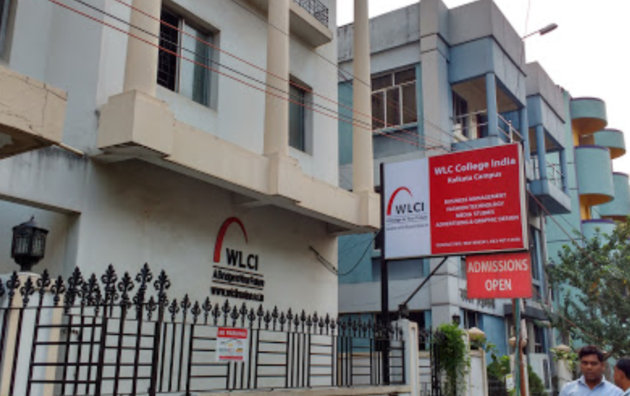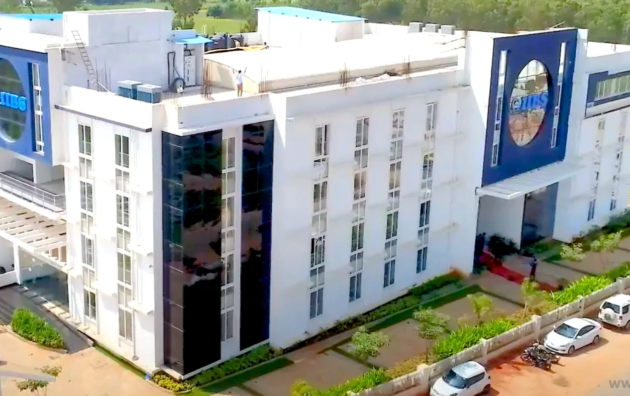Electronics and Communication Engineering
- Home
- Electronics and Communication Engineering
ECE full form is Electronics and Communication Engineering, which strongly focuses on the fundamental aspects of planning, design, analysis, and development of electronic equipment, communication systems, and circuit boards. ECE courses deal with the concepts of electricity, electronics, and electromagnetic theory. Electronics & Communication Engineering courses are offered at the UG, PG, diploma, and doctorate levels. Alongside classroom learning, students are also provided with extensive hands-on training via lab sessions and workshops.
Key Aspects of Electronics and Communication Engineering Courses:
- Core Focus Areas: Electronic Devices and Circuits, Circuit Theory, Network Analysis, Signal Processing, Microcontrollers, and Embedded Systems.
- Educational Pathways: UG, PG, Diploma, and Doctorate
- Specializations: Microelectronics & VLSI Design, Embedded Systems, Communication Systems, Power Electronics & Drives, Signal Processing, etc.
- Hands-on Experience: Strong focus on project work and lab sessions dedicated to electronic circuits, microcontrollers, and communication systems.
- Top Colleges: Top IITs, NITs, VIT Vellore, DTU, SRM Institute of Technology and Science, BITS Pilani, LPU, etc.
- Career Paths: Electronics Engineer, Network Planning Engineer, Embedded Systems Engineer, Telecom Engineer, VLSI Design Engineer, etc.
- Emerging Technologies: 5G and 6G Networks, IoT, AI in Hardware, Nanoelectronics, Quantum Computing, Sustainable Electronics, etc.
- Practical Skills: Circuit Design and Analysis, Electronic Troubleshooting, Programming Knowledge, Project Management, etc.
- Average Starting Salary: INR 5 LPA – INR 10 LPA
To know more about ECE courses in detail, read the article below.
Latest Updates for Electronics and Communication Engg. (ECE):
The GATE 2026 online application process is now open for admission to ME/MTech/PhD courses. The last date to apply without a late fee is September 28, 2025. Furthermore, the GATE 2026 exam will be held on February 7, 8, 14, and 15, 2026.
The WBJEE 2025 results have been announced for admission to BTech courses.
Electronics and Communication Engineering (ECE) Course Details: Highlights
Electronics and Communication Engineering courses after 12th grade lay emphasis on the design and development of circuit boards, equipment, and communication systems. The table below mentions the ECE course fees, course structure, average salary, top recruiters, and important entrance exams for Electronics and Communication Engineering courses:
ECE Course Highlights | ECE Course Details |
|---|---|
ECE Full Form in Engineering | Electronics and Communication Engineering |
ECE Course Levels | Undergraduate, Postgraduate, Diploma, Doctorate |
ECE Course Eligibility Criteria | UG: Class 12 along with entrance examination PG: BTech + Entrance Exam Diploma: Class 10 Doctorate: MTech + Entrance Exam |
| ECE Course Duration | UG: 4 years PG: 2 years Diploma: 3 years PhD: 3- 6 years |
| ECE Admission Process 2025 | Merit/Entrance-Based |
ECE Course Examination Type | Semester-wise |
ECE Entrance Exams 2025 | JEE Main & JEE Advanced, TS EAMCET, AP EAMCET, KCET, MHT CET, GATE, SRMJEEE, VITEEE, etc. |
Best ECE Colleges in India | VIT Vellore, DTU, NIT Trichy, IIT Kharagpur, SRM Institute of Science and Technology, NIT Rourkela, NIT Surathkal, BITS Pilani, etc. |
Average ECE Course Fees | INR 3 lakh – 12 lakh |
Average ECE Salary | INR 5 LPA – 10 LPA |
ECE Jobs in India | Electronics Engineer, Network Planning Engineer, Software Engineer, Electronics Design & Development Engineer, System Control Engineer, etc. |
Top ECE Course Recruiters | Bharat Electronics Limited (BEL), Bharat Heavy Electricals Limited (BHEL), Hindustan Petroleum Corporation Limited (HPCL), Texas Instruments, Intel, Siemens, Wipro, etc. |




